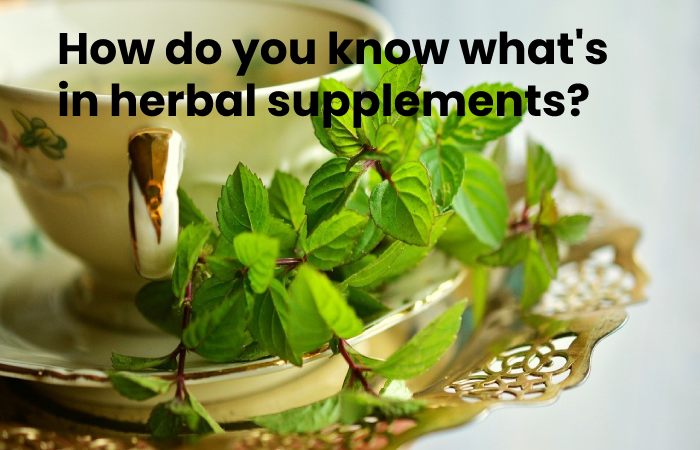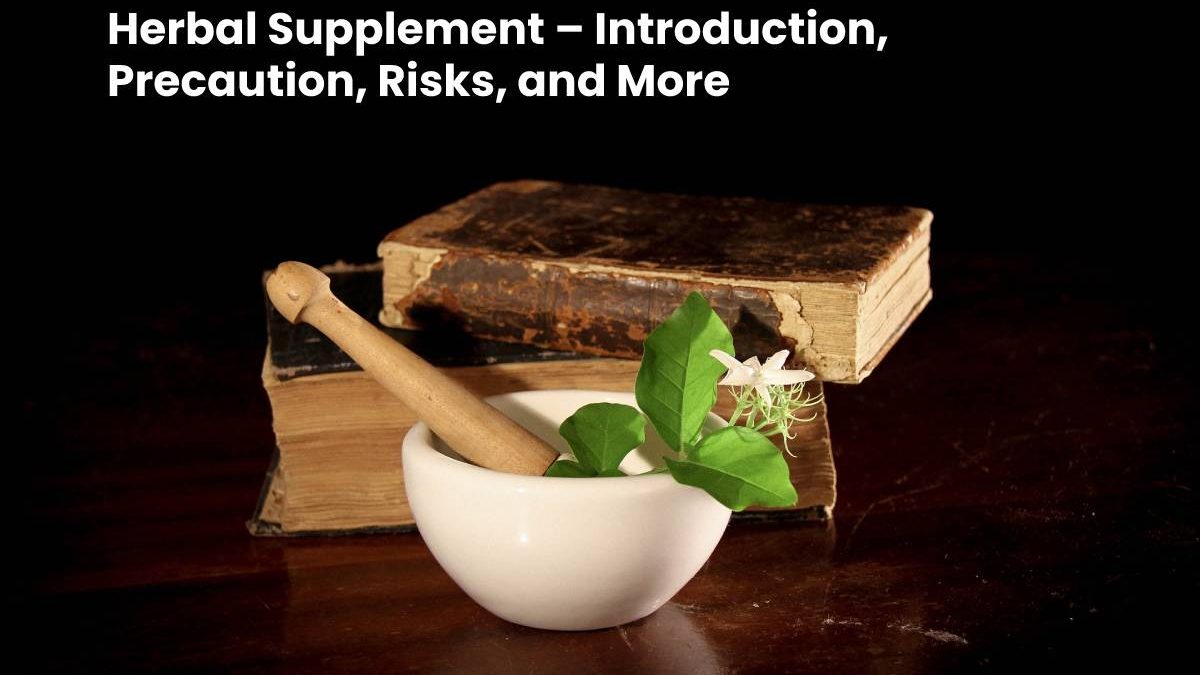Table of Contents
What are herbal supplements?
Supplements made from plants used to cure disease or maintain health are called herbal products and botanicals. A product made from plant bases and used solely for internal use is called a herbal supplement.
Herbal supplement may contain whole plants or just parts of them. Many treatment and over-the-counter medications are also made from plant products. But these products only contain purified ingredients and are regulated by the Food and Drug Administration (FDA).
They are available in many forms. It can be dried, cut, powdered, or come in a capsule or liquid form. They can use in numerous ways, such as the following:
- Take as pills, powders, or concentrated liquid extracts (tinctures)
- boil like a te
- Place on the skin in the form of gels, lotions or creams
Add to water to take a bath
The use of herbal supplements dates back thousands of years. Today, herbal supplements are mutual in the United States, but they are not for everyone. They are not subject to strict oversight by the FDA or other government agencies. For this reason, its use remains controversial. However, talk to your health care provider about any symptoms or conditions you have. Discuss the use of herbal supplements.
The FDA and Herbal Supplement
The FDA considers herbal supplement to be foods, not drugs. They’re not subject to the same testing, manufacturing, and labelling standards and regulations as drugs.
You can now see labels explaining how herbs can act in the body. But herbal supplement labels may not say that the herbs treat specific conditions. Thus, these supplements do not undergo clinical trials or the same manufacturing standards as a traditional prescription or over-the-counter medications. No study shows that a particular herb treats a health problem or prevents a specific condition.
Precautions when choosing herbal supplement
- Herbal supplement can interact with conventional medications
- Carefully follow label directions. If you use herbal supplement, use only the dosage indicated.
- Never take more than the recommended dose.
- Work with a professional. See a licensed, trained herbalist or naturopathic doctor with extensive training in this field.
- Pay attention to the appearance of side effects. If indications such as nausea, dizziness, headache, or upset stomach occur, reduce the dose or stop taking the supplement. Seek medical attention if symptoms do not subside or worsen.
- Pay attention to allergic reactions. A severe allergic reaction can cause breathing difficulties. If such a problem occurs, please call911or to the emergency number in your area for help.
- Research, the company that produces the herbs you are taking. Not all herbal supplements are created equal. Choose a brand from a reputable manufacturer. Ask yourself the following:
- Does the manufacturer research its herbal products, or is it just relying on the research efforts of others?
- Does the product label provide information on the standardized formula, side effects, components, directions, and precautions
- Is the information on the label clear and easy to read?
- Is the product tested and certified by an independent company to guarantee its quality, safety and efficacy?
Herbal Supplements: What You Should Know Earlier You Buy?
However, regulations safeguard that herbal supplements meet manufacturing standards but do not guarantee their effectiveness. Research before you buy.
Who should not use herbal supplement?
Herbal products can pose unexpected risks because many supplements contain active ingredients that strongly affect the body. For example, taking a combination of herbal supplements or using accessories and other prescription medications could be harmful and life-threatening.
It’s essential to talk to your specialist about herbal supplement if:
You take prescription medications or over-the-counter medications. Some herbs can cause serious side effects if mixed with aspirin, blood thinners, and blood pressure medications.
You are pregnant or breastfeeding. Medications that may be safe for you as an adult may be harmful to your baby.
You will undergo surgery. Many herbal supplements can affect the outcome of surgery. Some can reduce the effectiveness of anesthesia or cause dangerous complications, such as bleeding.
You are under 18 years of age or over 65 years of age. And older adults may metabolize drugs differently. Therefore, Few herbal supplement have been tested in children or for which a safe dose for children has been established.
How do you know what’s in herbal supplement?

FDA needs that supplement labels to include the following information:
- Supplement Name
- Name of the producer or supplier
- Full list of ingredients
- Serving Size, Quantity, and Active Ingredient
If there is anything on the tag that you don’t understand, ask your doctor or pharmacist to explain it.
An easy way to compare elements in products is to use the Dietary Supplement Label Database, which is available on the US National Institute of Health website. You can search for products by brand name, use, active ingredient, or manufacturer.
How can you know if the claims about supplement are accurate?
Manufacturers of herbal supplements are accountable for ensuring that the claims they make about their products are not false or misleading and supports by appropriate evidence. But they are not mandatory to submit this evidence to the FDA
Be a savvy consumer. Do not blindly trust the advertising of a product. Look for factual, research-based information to evaluate claims about a product.
To get reliable data about a supplement:
- Ask your doctor or pharmacist. Even if they don’t know about an exact supplement, they may be able to guide you to the latest medical advice on its uses and risks.
- Look for scientific research results. Two reliable sources in the United States are the National
- Center for Complementary and Integrative Health and the Office of Dietary Supplements. Both have internet sites to help consumers make informed decisions about dietary supplements.
- Contact the manufacturer. Call the manufacturer or distributor if you have queries about a specific product. Ask to express to someone who can answer questions, such as what data the company has to support claims about the product.
Safety tips for using herbal supplement
If you’ve done your homework and are thinking of trying a herbal supplement, play it safe with these tips:
- Follow the instructions. Do not exceed recommended dosages or take the supplement for longer than recommended.
- Keep track of what you drink. Take note of what you take.
- Choose the brand wisely. Opt for brands that have to evaluate by independent sources, such as
- ConsumerLab.com, the US Pharmacopeia, and NSF International.
Conclusion
Herbal supplements are dietary supplements that derive from plants. However, You may have heard of Ginkgo Biloba, ginseng, echinacea, and black cohosh. Scientific researchers are studying herbal supplements to prevent or treat some health problems.

